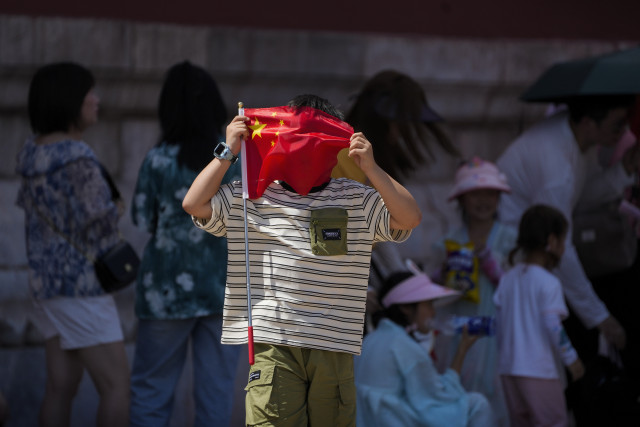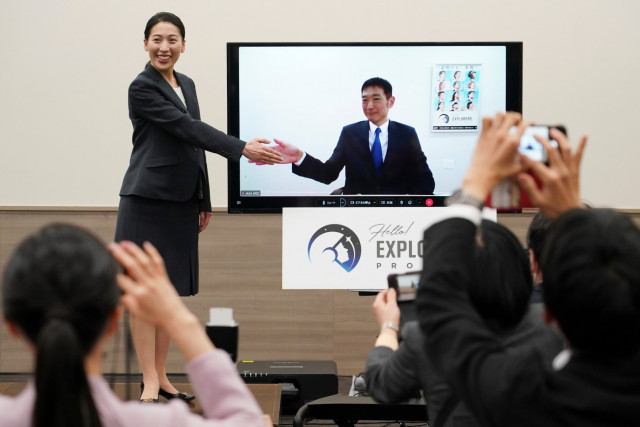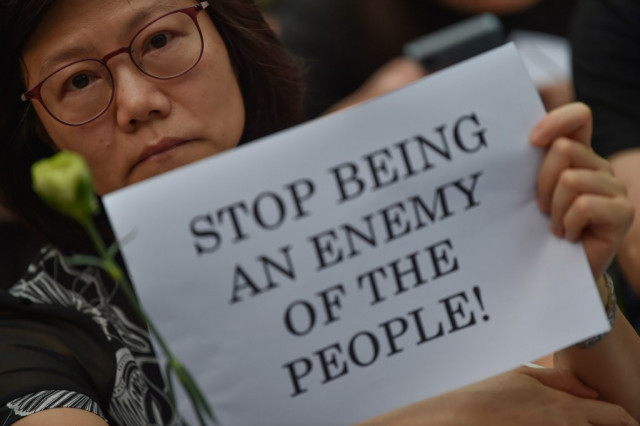Pchum Ben: Street Sellers Forget about Hometown, Hoping for Extra Income in Phnom Penh
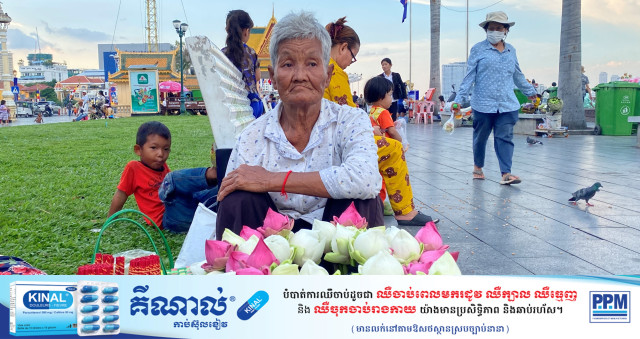
- By Teng Yalirozy
- October 13, 2023 6:00 PM
PHNOM PENH — On national holidays, people often rush out of the capital to their hometowns, looking forward to family gatherings and a few days off work.
The more so on Pchum Ben held from Oct. 13 through 16 this year, which is a time when families celebrate at home, go to their family pagoda, and remember their relatives who have passed away.
However, some sellers along the riverside in Phnom Penh don’t plan to leave the capital, seeing this 3-day national holiday as an opportunity to earn extra income.
Long Sam has a small scale on which people can step to check their weight, paying her what they wish. “Usually, Pchum Ben days, a good number of people will come to relax along the riverside,” she said. “So, when they see me, they will use my scale and give me some money.”
Sam, who is 57 years old, has been doing this work since she relocated to Phnom Penh, she said. Originally from Svay Rieng province, she has not been home for a very long time. And even if she had wanted to do so this year, she could not have afforded it and is in poor health.
“Money is not enough for traveling,” she said. “I live with my pregnant daughter in a rented room and have to pay the rent and bills. If I take a break for a few days, I could lose some income.”
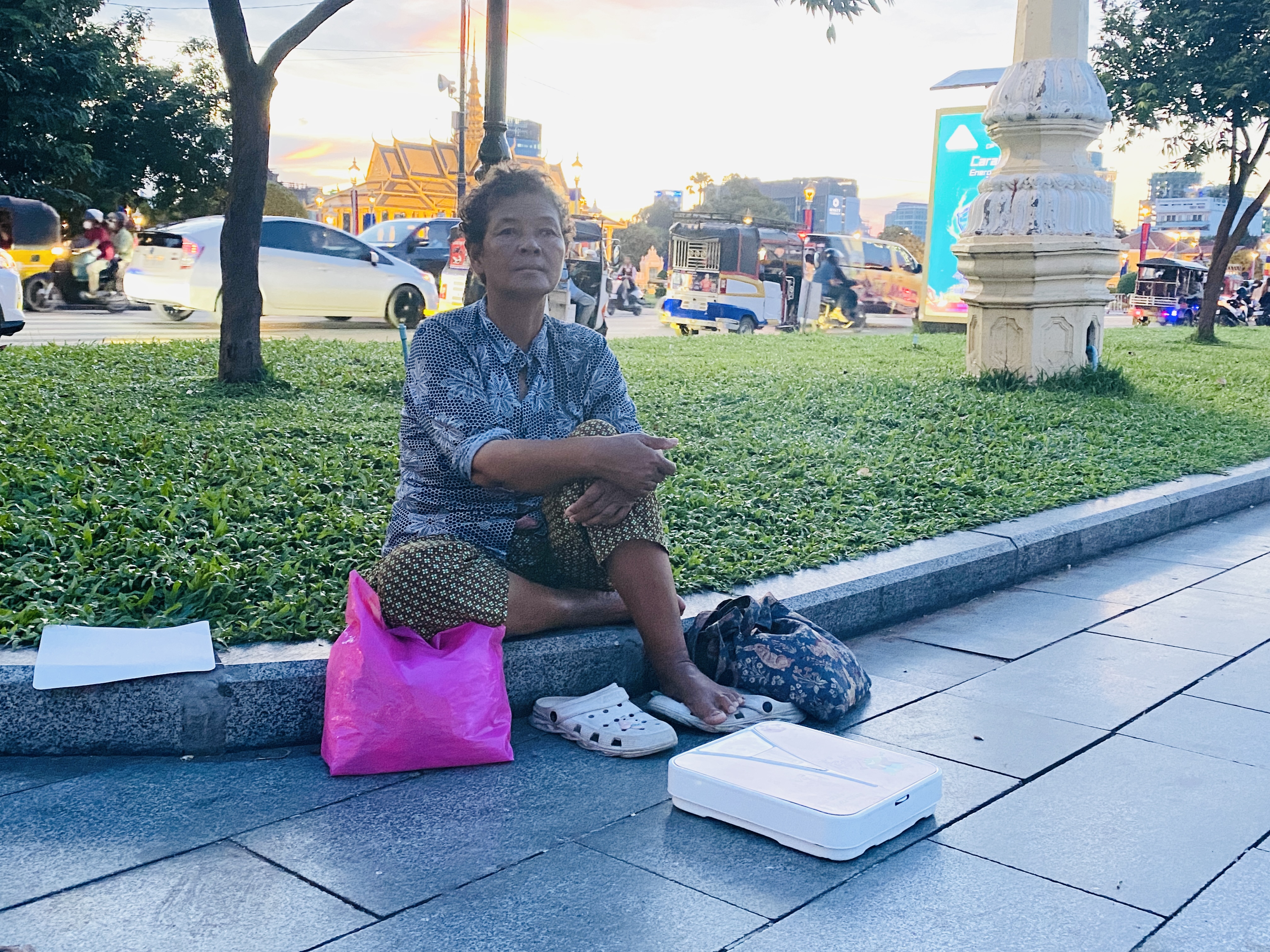
Sam can earn between 10,000 riel to 20,000 riels or roughly $2.5 to $5 a day. She needs to pay $30 a month for their room, and the leftover money will be spent on her medicine, food, and daily necessities. She has diabetes and must take daily medicine.
Like Long Sam, 67-year-old grandmother Poch Tang sees Pchum Ben as an opportunity to earn extra income.
From Kampong Cham province, Tang sells lotus flowers, incense and candles near the Preah Ang Dorngkeu Shrine. A bouquet of five lotus flowers, coming with 10 sticks of incense and two candles, can sell for 5,000 riels or $1.25, her earnings amounting to around 50,000 riels or $12.50 a day.
“I won’t go anywhere on Pchum Ben,” she said. “More people will come and buy flowers or incense to ask for happiness and safety at the Preah Ang Dorngkeu Shrine.”
Tang came to Phnom Penh about 20 years ago, at first selling various items and snacks in her rented room, which cost $60 per month.
She switched to selling flowers three years ago when her previous business was slowing down as a result of the COVID-19 pandemic. She is living with two grandchildren who are in school while their parents are working out of town.
Although they are not able to go to their family pagodas at home, both Long Sam and Poch Tang go to pagodas in Phnom Penh to offer food for their ancestors according to tradition and to ask for health so they can continue to work and help support their families.
Hope for Social Protection
Long Sam has an IDPoor (Identification of Poor Households) card through which she can get an allowance from the Cambodian government. She would like to get an NSSF (National Social Security Fund) membership card to get access to healthcare benefits, she said. Poch Tang does not have an IDPoor card or an NSSF card.
Both of them are informal workers and self-employed.
On Oct. 10, Prime Minister Hun Manet urged informal workers to register with the administration so that they can be part of the formal economy and benefit from social protection, the National Strategy on Informal Economic Development 2023-2028 having been launched.
Self-employed individuals such as them and vendors, tuk-tuk and rickshaw drivers, street food sellers, and so on will receive free healthcare, scholarships for their children, monthly allowances as well as employment opportunities.
As part of the national strategy, Hun Manet has instructed the municipal and communal authorities to spread the information and help formalize the economy.
At the present time, Long Sam and Poch Tang are not aware of this program and have no information as to where and how to register to be part of it.






